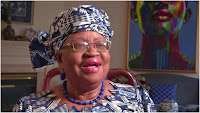These pundits rarely point to the fact that the European signatories to the nuclear deal – Joint Comprehensive Plan of Action (JCPOA) – have lost the neutrality needed to act as a go-between since Joe Biden won the US presidential election in November. The Europeans are now harboring even more hawkish views than Washington itself.
During the Trump administration, the European parties to the JCPOA – France, Germany and the UK (E3) – had been calling on Iran to fully implement the nuclear deal in the hope that Trump would lose the presidential election and then they will revive the JCPOA in collaboration with a more favorite Democratic administration.
Trump lost the election and was replaced by someone who had played a direct role in negotiating the JCPOA in the first place. But the Europeans were quick to renege on their promise to salvage the nuclear deal. They called for a new negotiation with Iran after Biden assumed office, one that would expand the JCPOA and add other thorny issues such as Iran’s defensive missile program and its regional activities to it.
The top diplomats of the E3 and the US reiterated this position during a recnt joint meeting.
“The E3 welcomed the prospect of a US and Iranian return to compliance with the JCPOA. The E3 and the United States affirmed their determination to then strengthen the JCPOA and, together with regional parties and the wider international community, address broader security concerns related to Iran’s missile programs and regional activities. We are committed to working together toward these goals,” the chief diplomats said in a joint statement after the meeting.
The Europeans are now planning an informal meeting of all JCPOA participants and the US. Citing a European official, Reuters said that the date of this meeting is yet to be set. The official also pointed to a US willingness to accept an invitation from the EU to participate in a meeting of the P5+1.
Earlier, US State Department spokesman Ned Price said Washington was willing to attend a meeting of the P5+1, although the US is not a member of this group of major world powers.
“The United States would accept an invitation from the European Union High Representative to attend a meeting of the P5+1 and Iran to discuss a diplomatic way forward on Iran's nuclear program,” Price noted, referring to the UN Security Council's five permanent members and Germany.
Price’s remarks signified a U.S. desire to walk into the P4+1 with the help of the E3 even before lifting its sanctions on Iran.
Iran’s Foreign Ministry spokesman Saeed Khatibzadeh reminded the West that the US is still not a JCPOA member and the only way to get the JCPOA membership is to lift sanctions.
Because of US withdrawal from JCPOA, there is NO P5+1. It is now only Iran and P4+1. Remember, Trump left the room and tried to blow it up. Gestures are fine. But to revive P5+1, US must act lift sanctions. We will respond, Khatibzadeh said on Friday.
But while the E3 tries to sneak the US in the JCPOA without lifting the sanctions, two JCPOA parties, namely China and Russia, can ensure that the US would rejoin the nuclear deal after correcting the mistakes Trump made against Iran.
China took a step in this regard by saying that US should unconditionally return to the JCPOA and lift all sanctions.
Speaking at a news conference, China’s Foreign Ministry Hua Chunying said, “Currently the Iranian nuclear issue is at a critical stage with both opportunities and challenges. China holds that the return of the United States to the JCPOA is the only correct approach to resolve the impasse on this issue. All parties should act with greater urgency, work together to implement consensus reached at the foreign ministers' meeting last December, and push for the unconditional return of the United States to the JCPOA as soon as possible and the lifting of all sanctions on Iran. On its part, Iran should resume full compliance with the JCPOA. In the meantime, we call on all sides to remain calm and exercise restraint, avoid taking actions that will escalate the situation and reserve space for diplomatic efforts.”
Russia, for its part, reminded the West why the JCPOA ended up a failed deal. Dmitry Peskov, spokesman for the Kremlin, has welcomed a US decision to rescind the Trump administration’s restoration of all UN sanctions on Iran in September.
Peskov also said that the main reason for the non-implementation of the JCPOA is the sanctions pressure that the US put on Iran.
Also, Russian Deputy Foreign Minister Sergey Ryabkov told TASS that Iran cannot be suspected of carrying out a covert nuclear weapons program as the E3 and the US ramped up pressure on Iran, accusing it of pursuing nuclear activities that have no civil justifications.
“We have always said and are saying now that a state, which has an agreement on comprehensive guarantees with the International Atomic Energy Agency (IAEA) and which has been committed to this deal - and Iran has such an agreement, and a state, which has been fully observing the JCPOA for a long time, cannot be suspected of carrying out a covert program on weaponization in the nuclear field,” Ryabkov noted.
With the E3 working to pave the way for a US return to the JCPOA without lifting the sanctions, Russia and China have a unique opportunity to ensure that the dispute around the JCPOA is resolved reasonably. They need to make it clear to the West that a dispute settled unfairly is bound to break out in the not-so-distant future.






